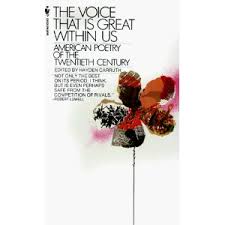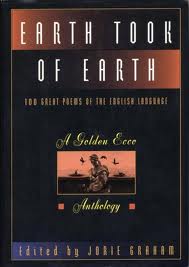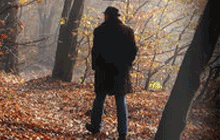Poetry is not about information; it is about formation. It seeks to bring the common human experience to every reader, in all times and at all places. It stirs the soul. It is a powerful force. A recent advertisement seeks to highlight the power of such poetry. Experience this moment of poetry:
In reading the following, consider how and why poetry stirs your soul. Before you jump in, consider this advice on reading poetry from The Academy of American Poets.
How to Read a Poem (Source)
Reproduced in partnership with the Great Books Foundation. Edited by FTU.
Reading poetry well is part attitude and part technique. Curiosity is a useful attitude, especially when it’s free of preconceived ideas about what poetry is or should be. Effective technique directs your curiosity into asking questions, drawing you into a conversation with the poem.
The goal of careful reading is often to take up a question of meaning, an interpretive question that has more than one answer. Since the form of a poem is part of its meaning (for example, features such as repetition and rhyme may amplify or extend the meaning of a word or idea, adding emphasis, texture, or dimension), we believe that questions about form and technique, about the observable features of a poem, provide an effective point of entry for interpretation. To ask some of these questions, you’ll need to develop a good ear for the musical qualities of language, particularly how sound and rhythm relate to meaning. This approach is one of many ways into a poem.
Getting Started: Prior Assumptions
Most readers make three false assumptions when addressing an unfamiliar poem. The first is assuming that they should understand what they encounter on the first reading, and if they don’t, that something is wrong with them or with the poem. The second is assuming that the poem is a kind of code, that each detail corresponds to one, and only one, thing, and unless they can crack this code, they’ve missed the point. The third is assuming that the poem can mean anything readers want it to mean.
William Carlos Williams wrote a verse addressed to his wife in the poem “January Morning,”:
All this—
was for you, old woman.
I wanted to write a poem
that you would understand.
For what good is it to me
if you can’t understand it?
But you got to try hard—
Williams admits in these lines that poetry is often difficult. He also suggests that a poet depends on the effort of a reader; somehow, a reader must “complete” what the poet has begun.
This act of completion begins when you enter the imaginative play of a poem, bringing to it your experience and point of view. If a poem is “play” in the sense of a game or a sport, then you enjoy that it makes you work a little, that it makes you sweat a bit. Reading poetry is a challenge, but like so many other things, it takes practice, and your skills and insight improve as you progress.
Literature is, and has always been, the sharing of experience, the pooling of human understanding about living, loving, and dying. Successful poems welcome you in, revealing ideas that may not have been foremost in the writer’s mind in the moment of composition. The best poetry has a magical quality—a sense of being more than the sum of its parts—and even when it’s impossible to articulate this sense, this something more, the power of the poem is left undiminished.
Poems speak to us in many ways. Though their forms may not always be direct or narrative, keep in mind that a real person formed the moment of the poem, and it’s wise to seek an understanding of that moment. Sometimes the job of the poem is to come closer to saying what cannot be said in other forms of writing, to suggest an experience, idea, or feeling that you can know but not entirely express in any direct or literal way….
Reading a Poem Aloud
Before you get very far with a poem, you have to read it. In fact, you can learn quite a few things just by looking at it. The title may give you some image or association to start with. Looking at the poem’s shape, you can see whether the lines are continuous or broken into groups (called stanzas), or how long the lines are, and so how dense, on a physical level, the poem is. You can also see whether it looks like the last poem you read by the same poet or even a poem by another poet. All of these are good qualities to notice, and they may lead you to a better understanding of the poem in the end.
But sooner or later, you’re going to have to read the poem, word by word. To begin, read the poem aloud. Read it more than once. Listen to your voice, to the sounds the words make. Do you notice any special effects? Do any of the words rhyme? Is there a cluster of sounds that seem the same or similar? Is there a section of the poem that seems to have a rhythm that’s distinct from the rest of the poem? Don’t worry about why the poem might use these effects. The first step is to hear what’s going on….
Starting the Conversation
We mentioned earlier that encountering a difficult poem is like a game or sport, say rock climbing, that makes you work a bit. The idea of finding handholds and footholds and ascending one bit at a time is apt. But some climbs are easier than others; some are very easy. You may enjoy an easy climb for a while, but you may also find that you want a bigger challenge. Reading poetry works the same way, and, fortunately, poets leave trails to help you look for the way “up” a poem. You’ll have to do some work, hard work in some cases, but most of the time, the trails are there for you to discover.
At the Great Books Foundation, we believe that the best way to discover and learn about a poem is through shared inquiry discussion. Although your first experience of the poem may be private and personal, we think talking about the poem is a natural and important next step. Beginning with a focus question about the poem, the discussion addresses various possible answers to the question, reshaping and clarifying it along the way. The discussion should remain grounded in the text as much as possible. Responses that move away from what is written into personal anecdotes or tangential leaps should be gently urged back into analyzing the text. The basis for shared inquiry is close reading. Good readers “dirty the text” with notes in the margins. They make the inquiry their own. We encourage you to write your own notes in this book.
Talking Back to a Poem
It would be convenient if there were a short list of universal questions, ones that could be used anytime with any poem. In the absence of such a list, here are a few general questions that you might ask when approaching a poem for the first time:
- Who is the speaker?
- What circumstances gave rise to the poem?
- What situation is presented?
- Who or what is the audience?
- What form, if any, does the poem take?
- How is form related to content?
- Does the poem use imagery to achieve a particular effect?
- What kind of figurative language, if any, does the poem use?
- If the poem is a question, what is the answer?
- If the poem is an answer, what is the question?
You can fall back on these questions (and many more) as needed, but experience suggests that since each poem is unique, such questions will not go the necessary distance. In many instances, knowing who the speaker is may not yield any useful information. There may be no identifiable occasion that inspired the poem. But poems do offer clues about where to start. Asking questions about the observable features of a poem will help you find a way in.
Text and Context
Some people say that a poem is always an independent work of art and that readers can make full sense of it without having to use any source outside the poem itself. Others say that no text exists in a vacuum. However, the truth lies somewhere in between. Most poems are open to interpretation without the aid of historical context or knowledge about the author’s life. In fact, it’s often best to approach a poem without the kind of preconceived ideas that can accompany this kind of information. Other poems, however, overtly political poems in particular, will benefit from some knowledge of the poet’s life and times. The amount of information needed to clearly understand depends on you and your encounter with the poem. It’s possible, of course, even for someone with a deep background in poetry to be unaware of certain associations or implications in a poem. This is because poems are made of words that accumulate new meanings over time.

Photo (restyled in b/w): Exhibit: Distinct Ambiguity / GRAFT Architects, at Berlin’s Haus am Waldsee
Embrace Ambiguity
Here’s a tricky issue: the task is to grasp, to connect, to understand. But such a task is to some degree impossible, and most people want clarity. At the end of class, at the end of the day, we want revelation, a glimpse of the skyline through the lifting fog. Aesthetically, this is understandable. Some magic, some satisfaction, some “Ahhh!” is one of the rewards of any reading, and particularly the reading of poetry. But a poem that reveals itself completely in one or two readings will, over time, seem less of a poem than one that constantly reveals subtle recesses and previously unrecognized meanings.
Too often we resist ambiguity. Perhaps our lives are changing so fast that we long for stability somewhere, and because most of the reading we do is for instruction or information, we prefer it without shades of gray. We want it to be predictable and easy to digest. And so difficult poetry is the ultimate torment.
Some literary critics would link this as well to the power of seeing, to the relationship between subject and object. We wish the poem to be object so we can possess it through our “seeing” its internal workings. When it won’t allow us to “objectify” it, we feel powerless.
Torment, powerlessness—these are the desired ends? Well, no. The issue is our reaction, how we shape our thoughts through words. We have to give up our material attitude, which makes us want to possess the poem. Maybe we’ve bought the book but we don’t own the poem. We have to cultivate a new mindset, a new practice of enjoying the inconclusive.
Version 3.0








_17422494921.png )

